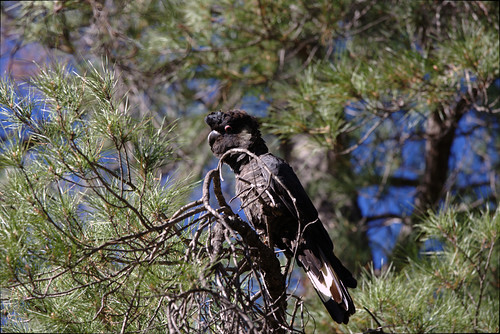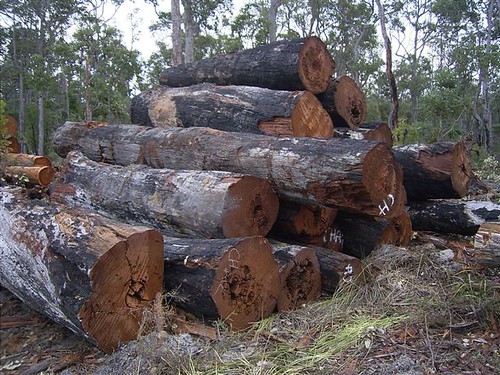Logging plan meets opposition
 Thursday, May 10, 2012 at 23:52
Thursday, May 10, 2012 at 23:52  Carnaby's Black-Cockatoo is threathend by logging. Image by lostandcoldTHE Conservation Commission of WA’s Forest Management Plan 2014–2023 Environmental Scoping Document is meeting with fierce opposition from academic and environmental groups.
Carnaby's Black-Cockatoo is threathend by logging. Image by lostandcoldTHE Conservation Commission of WA’s Forest Management Plan 2014–2023 Environmental Scoping Document is meeting with fierce opposition from academic and environmental groups.
The major concern is expansion of native forest logging.
According to Forest Product Commission (FPC) data, average logging of Jarrah was 7,255 ha/yr and Karri 1,456 ha/yr from 2004–2010.
The new plan proposes a 15 per cent increase to 10,000 ha/yr.
According to Murdoch University’s Prof Giles Hardy, the move paradoxically reflects forest health.
“The main reason for the increase is the inability to find suitable quality wood to meet contracts,” he says.
“The forest is more stressed than ever as a result of previous logging practices and a drying climate. We’re reaching a tipping point.
“People need to push the Government to put more resources into the Department of Environment and Conservation. There are passionate people who want to make a difference, but they don’t have proper funding.”
According to Beth Schultz, Spokesperson for the South-West Forests Defence Foundation Inc and WA Forest Alliance, only 15 per cent of the wood in jarrah logs and 12 per cent of the wood in karri logs sold by the FPC became sawn timber last year.
 “All the evidence shows the quantity and quality of native forest logs have declined steeply since 2004.”—Ms Schultz. Image: Rain Forest Action Network“All the evidence shows the quantity and quality of native forest logs have declined steeply since 2004,” she says.
“All the evidence shows the quantity and quality of native forest logs have declined steeply since 2004.”—Ms Schultz. Image: Rain Forest Action Network“All the evidence shows the quantity and quality of native forest logs have declined steeply since 2004,” she says.
“Commercial quantities of good quality sawlogs are no longer available. Since obtaining sawlogs for high value timber products has been the justification for logging our native forests and that justification no longer exists—logging should stop.”
Piers Verstegen, Director of the Conservation Council of WA, highlights wildlife.
"Existing logging activity is already having a serious impact on threatened species, including black cockatoos and numbats. This outrageous proposal to increase logging could easily lead to the extinction of these unique animals.
"Not only is the Government’s plan a death sentence for endangered wildlife, it is totally out of line with community sentiment on the issue.”
The plan also impacts climate change.
Recent research by Prof Grant Wardell-Johnson of the Curtin Institute for Biodiversity and Climate shows logging native forests always results in a loss of carbon, even with the replanting of fast-growing trees.
This is due to soil carbon breakdown, including the loss of old-growth trees’ extensive root systems.
The two-week period for public comment closes Monday, 14 May 2012.
Submissions can be made via submissions@epa.wa.gov.au

